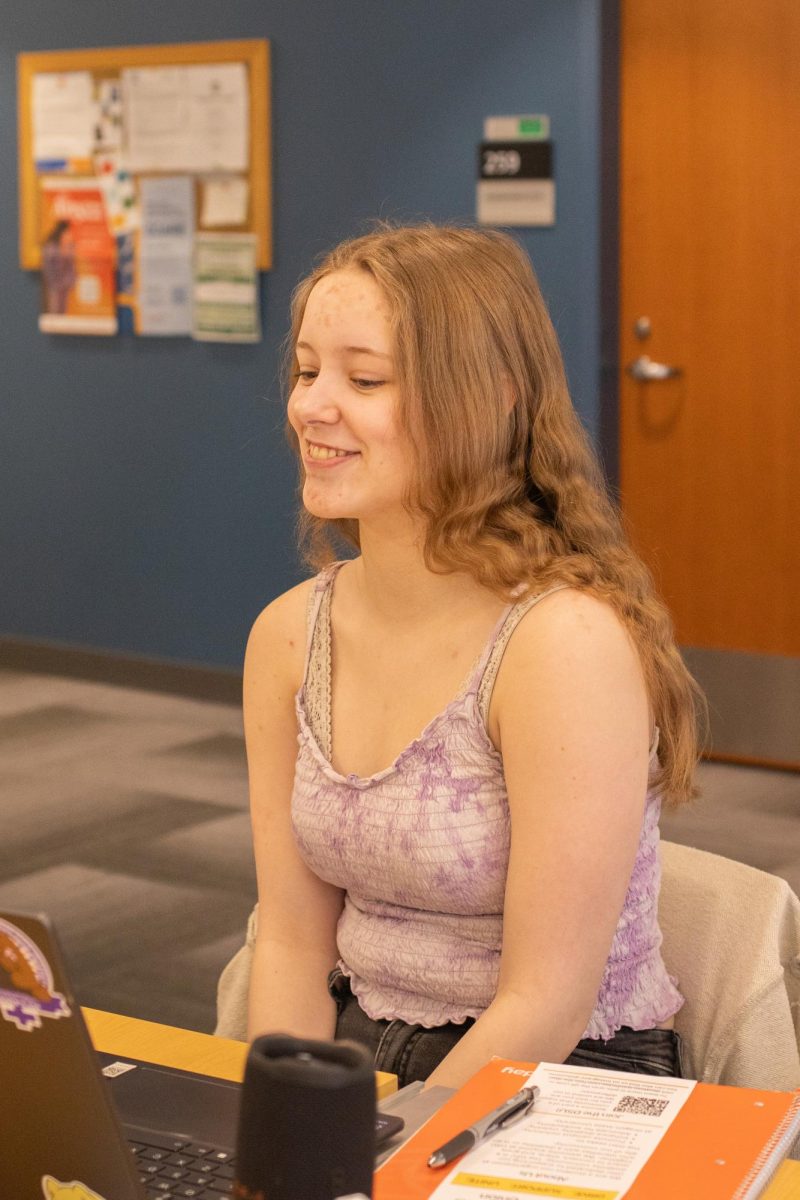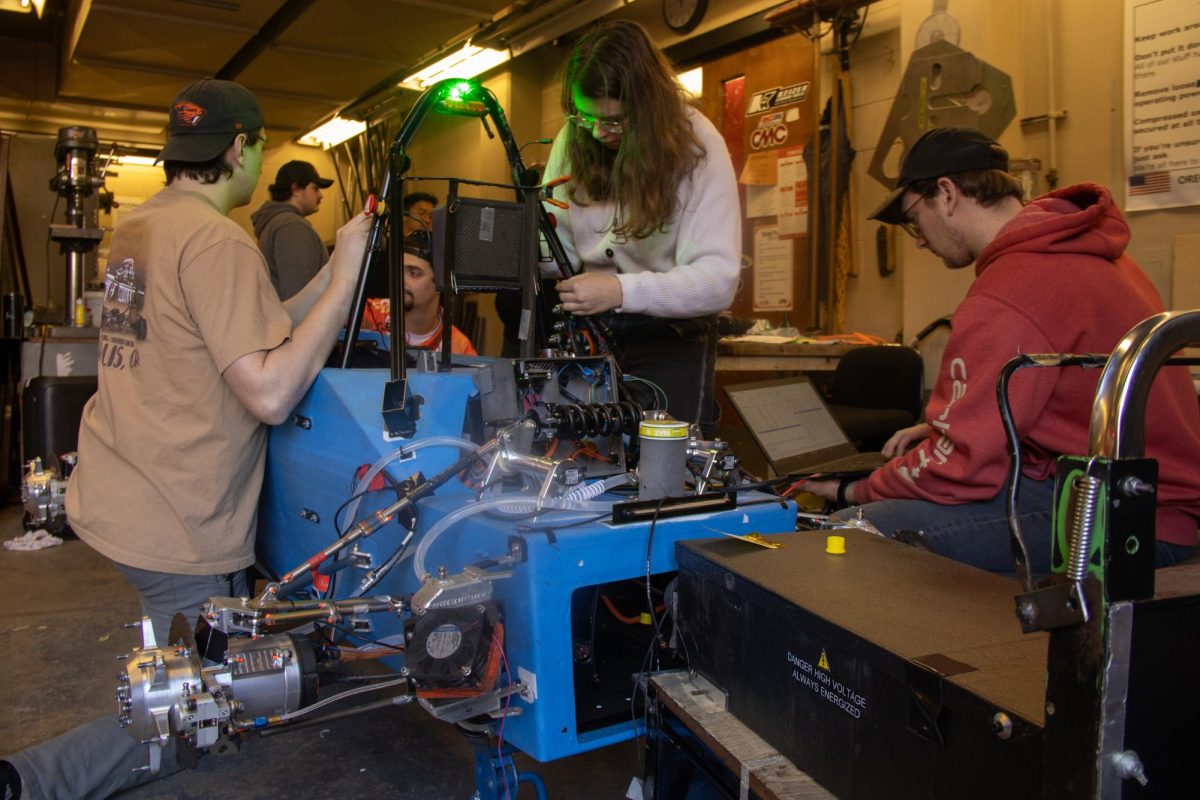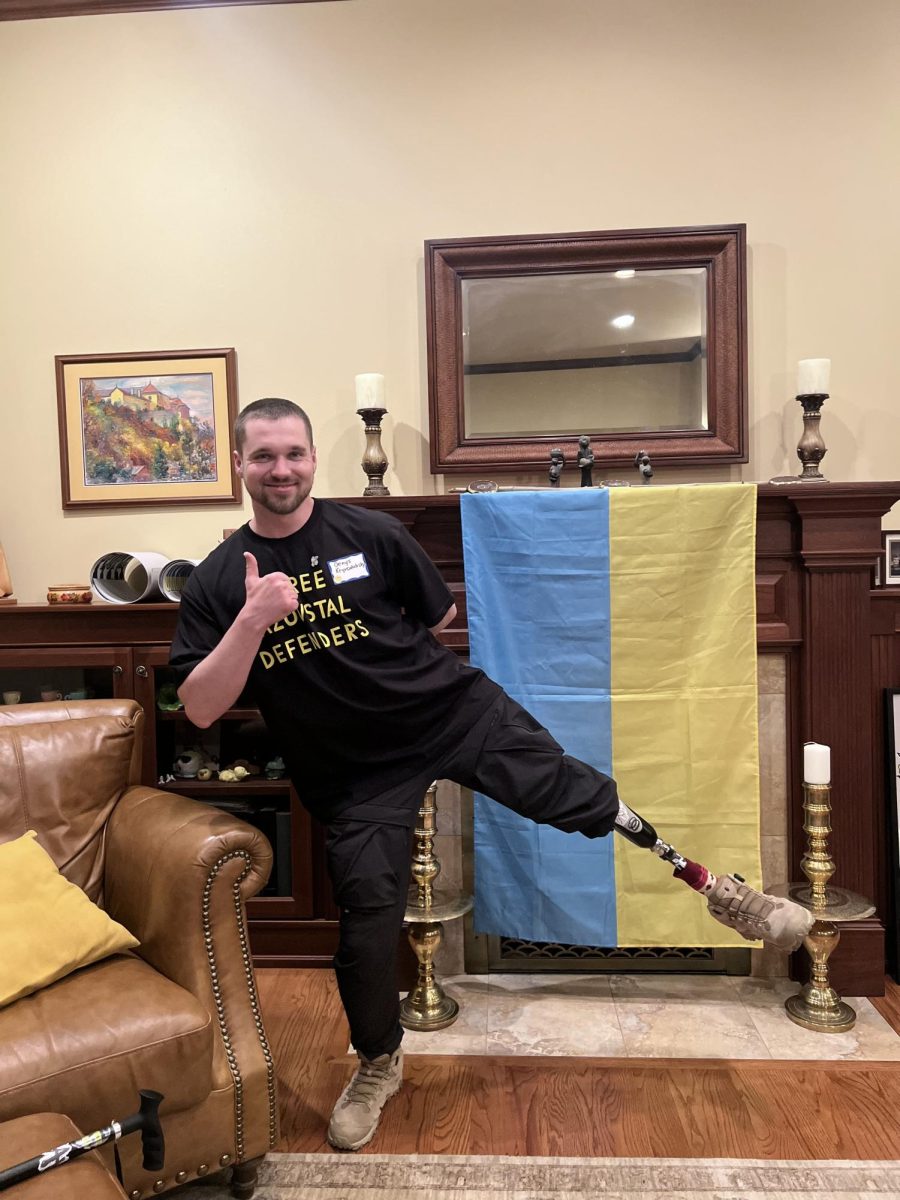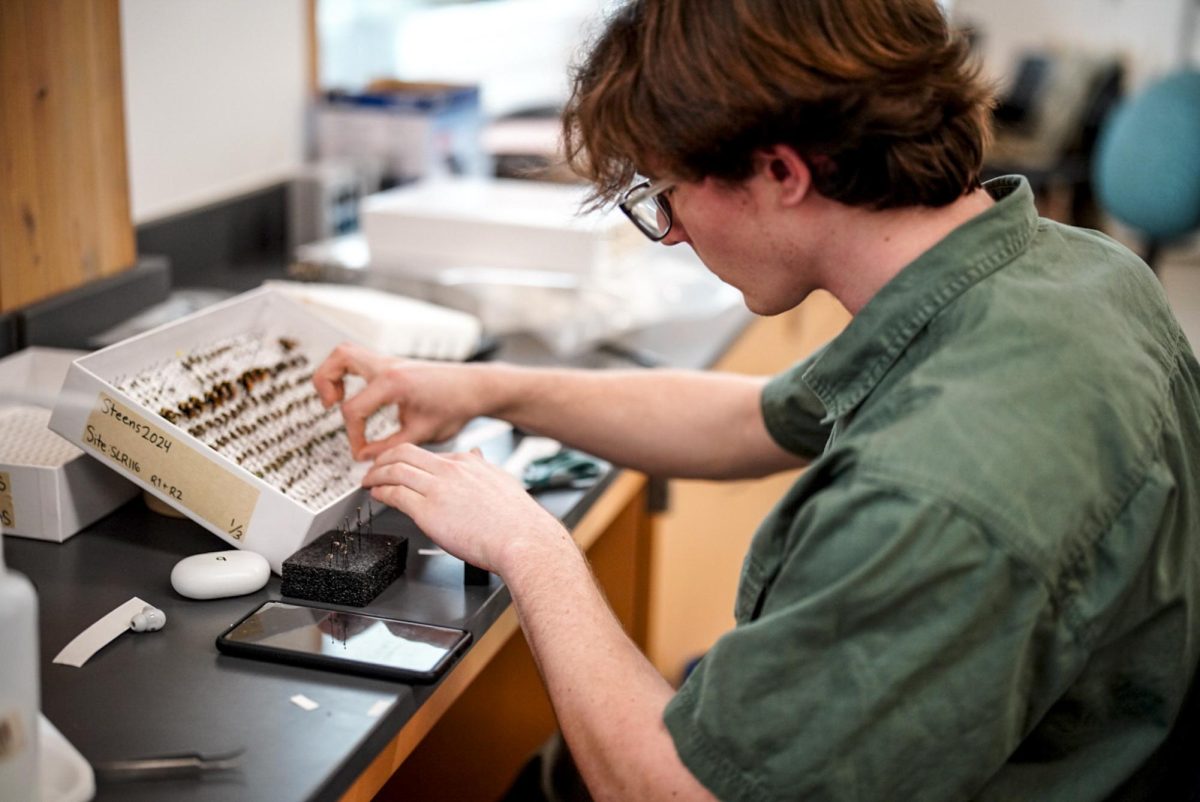The Associated Students of Oregon State University Judicial Council voted to injunct the bill that would focus on divestment and social responsibility for where student fee money is allocated.
“Working Group on Social Responsibility in Fee Allocations,” or SB 84.16, seeks to address ethical concerns in the allocation of student incidental fees, particularly in relation to divestment and social responsibility.
Despite the decision to veto the bill from the executive branch, concerns raised by the Student Fee Committee and university administration, and an injunction by the judicial branch, SB 84.16 was ultimately resurrected in a motion to override, with 12 ayes and two nays from Senator Raschkes and Senator Wright.
Upon the veto override and enacting of SB 84.16, Senate Pro-Tempore Adison Rowe said, “I’m super excited to see that SB 84.16 passed and was overridden. I think this is a change that we saw a huge outpouring of support for, at in-person meetings, on social media and in emails addressed to the Senate. The encampment and protests last year paved the way for ASOSU to make this change, we wouldn’t be here without them.”
Rowe went on to say that this bill follows through on multiple changes students have wanted to see, namely increasing student input and control in how fees are decided.
“The elected Senate has more ability to reduce the fee, raise wages, and divest — something I think almost every student would like to see,” Rowe said. “At the very least, I think students are glad to know it’s the elected Senate who can make these changes happen.”
Through a series of explosive and hotly contested ASOSU Senate meetings regarding the deliberation of this bill, after three weeks of contention, the ASOSU Senate passed the bill in December in a nearly unanimous vote consisting of 15 ayes and a single nay from Senator Nathan Raschkes.
The bill reaffirms the ASOSU’s commitment to divest from companies that are “complicit in the ongoing genocide and apartheid against the Palestinian people.” This bill comes as the culmination of what is a series of resolutions passed by the Senate, spanning over the course of the previous 83rd Senate and the current 84th Senate calling for divestment.
The bill adds amendments to the ASOSU Code of Conduct which aim to protect members of the student government from penalties related to noncompliance with reporting peaceful protests or acts of civil disobedience that violate OSU’s Code of Conduct.
The bill seeks to establish an independent body to develop ethics guidelines for fee allocation. The responsibilities of this committee include reviewing procurement contracts for ethical conflicts, advising on divestment strategies, and promoting adherence to socially responsible practices.
However, just because the committee will raise concerns or suggestions to the ASOSU Senate, it does not mean the ASOSU Senate must take into consideration these concerns or suggestions.
A point of controversy between the ASOSU Senate and the existing institutions of OSU lies in the bill’s reiteration of ultimate authority over fiscal decisions under section 10, which states, “the Senate is herein explicitly recognized and conferred the ability to introduce, deliberate, amend and vote upon, any form whatsoever of fiscal legislation.”
This creates a point of tension between the ASOSU Senate powers and the powers traditionally held by the Student Fee Committee and OSU institutional bodies.
However, despite all this bill offers, the point of so much contention for many students on campus lies in the direct mentioning and acknowledgment of the current Israeli-Palestinian conflict specifically called upon as soon as the second paragraph of the bill.
“The Palestinian people, who have been displaced from their lands and the subject of ethnic cleansing since 1948, are currently subject to widespread destruction and loss of civilian life in Gaza, following a military invasion by the State of Israel after the attacks of October 7,” SB 84. 16 states.
After the ASOSU Senate meeting, where the bill was passed before its veto, a rally organized by the OSU Palestine Solidarity Coalition was held outside of the Student Experience Center in an effort to express support for the bill and pressure on the ASOSU President Audrey Schlotter to pass the bill.
The crowd urging Schlotter could be heard chanting, “From the sea to the river, Palestine will live forever,” “brick by brick, wall by wall, Palestine will free us all,” and “Audrey, you have power,” with the final chant emphasizing the weight of Schlotter’s position.
ASOSU Senator Donovan Morales-Coonrad was one of many in the crowd calling for action, however, he said he was not acting as a representative of the ASOSU but instead as a student of OSU.
“I don’t want my school dollars to be going to this, I don’t want the dollars my immigrant dad is working hard for, to go and fund this,” Morales-Coonrad said.
In the midst of this passionate contention, attendees of the PSC rally moved into Schlotter’s office to speak with her directly and give her a letter, formally declaring their position in support of the bill.
The letter was signed by roughly 52 attendees and was hand-delivered to Schlotter during the rally.
“I have been seeing the devastation in Palestine, and now Lebanon, every day for over a year, and it haunts me,” said Sierra, an OSU student and attendee of the rally, who asked to leave their last name anonymous. “OSU’s money should not be supporting companies who profit from these atrocities. This bill is a necessary step in divesting money from these companies.”
Sierra studies education. Over the course of her studies, she has learned about the care of children and young people. This has shaped her outlook on the conflict raging in the Middle East.
“In the past year, the largest age group of those killed in Palestine is children aged 5-9. I feel such a disconnect between the principles I’m taught in my classes and the places that OSU’s money is going,” Sierra said. “Students should have a voice in where our money is going — and we’re saying we don’t want it going to companies profiting off of genocide.”
“Beyond the moral imperative of removing some of OSU’s complicity in genocide, passing this bill would pave the way for more democratic control that students would have over their tuition dollars,” said Mahdy Alkhodr, a rally attendee.
This bill only addresses student fee dollars since the ASOSU does not preside over tuition.
In wake of the nearly unanimous decision made by the ASOSU Senate to pass this piece of legislation, many students of the Jewish faith felt their grievances were not being heard by the ASOSU Senate.
In the second week of deliberation on SB 84.16, held Nov. 26, Elana, a gallery member who asked for her last name to be anonymous, spoke out against the perceived disregard for the concerns of the Jewish community by the ASOSU Senate. Elana argued the arrival of this bill felt more like an ambush than a proper piece of legislation.
“Students should not feel excluded from communities on campus. The reason I am bringing this up is because of the way this bill is written,” Elana said. “This bill singles out Israel specifically and does not bring up any other ethical topics. And, Jewish communities on campus were also unaware of this bill until less than 24 hours before the first reading. These facts make this seem less like a bill for an ethical committee, and instead, a committee to discuss the Israel-Palestine conflict that will exclude the majority of Jewish student voices.”
M Angster, a spiritual advisor to Jewish students on campus, joined Elana in expressing his exhaustive fight to be heard by the ASOSU as a member of the Jewish community.
“I have talked before the ASOSU countless times on the issue of antisemitism and frankly it is exhausting, demoralizing and unethical to have to be back again and again,” Angster said.
In the resolutions leading up to this bill, Schlotter left these bills unsigned: SR 84.01, “Student Protest and Encampment Solidarity Resolution” and SR-84.03, “Call for OSU to Divest from the Ongoing Illegal Occupation of Palestine and Genocide of Palestinians.”
However, compared to resolutions of the past, Schlotter decided to veto SB 84.16.
In her memo, she highlights that the decision to veto the bill is not a reflection on sections one and two of the bill, but instead concerns raised in section three, which points to changing the structure of the ASOSU by adding a committee.
“This bill shifts authority in a way that undermines the work of the Student Fee Committee, and its democratically elected student leaders,” Schlotter states in the memo.
In her memo, Schlotter describes the emotional toll and challenges she faced during this legislative process.
“I left my office that day in tears and questioned what signing this bill would mean for students I agree with on this issue and those I do not agree with,” Schlotter said. “Because of the tactics used by people deeply ingrained in ASOSU, I feared that my action or inaction on this issue would result in both physical and mental harm to myself and those I love. After the most emotionally taxing Week Ten and Finals Week of my college career, I decided I wanted to stand up for what I believed in but not by signing a bill that I believe many students were inappropriately influenced into supporting.”
Editor’s note: The Barometer has not included Sierra’s last name out of concerns for backlash.




















































































![Newspaper clipping from February 25, 1970 in the Daily Barometer showing an article written by Bob Allen, past Barometer Editor. This article was written to spotlight both the student body’s lack of participation with student government at the time in conjunction with their class representatives response. [It’s important to note ASOSU was not structured identically to today’s standards, likely having a president on behalf of each class work together as one entity as opposed to one president representing all classes.]](https://dailybaro.orangemedianetwork.com/wp-content/uploads/2025/03/Screenshot-2025-03-12-1.00.42-PM-e1741811160853.png)


























